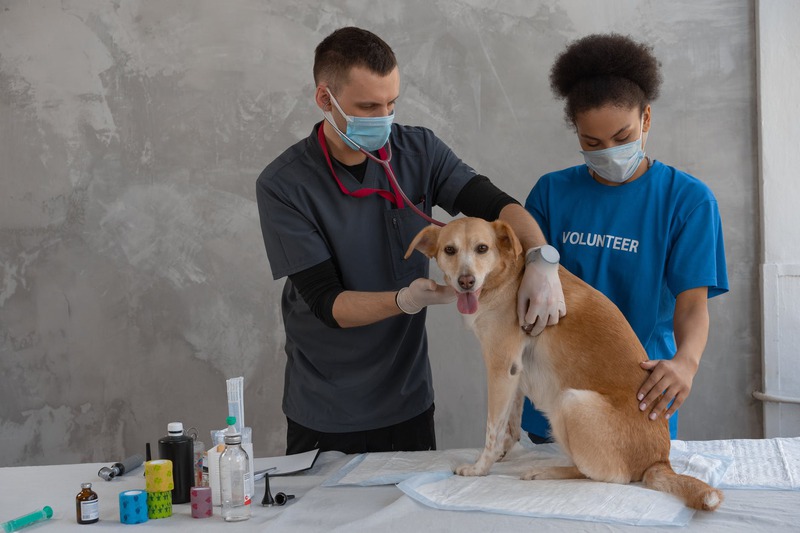Plunging into the world of pet health isn’t an everyday walk in the park—it’s often complex and demanding. A veterinary internist becomes invaluable when dealing with intricate diagnoses and treatment plans for your pet. Their grounded expertise and specialized know-how position them as a crucial part of your pet’s healthcare journey.
Acting as a key link between your primary vet and complicated health issues, they leave no stone unturned. They provide an all-rounded perspective to your pet’s health, extending from basic to subtle, ensuring your furry friend enjoys a wholesome, healthy life.
Detailed Understanding of the Veterinary Internist
Pets have complex bodily systems. Something as simple as a change in their eating patterns can be symptoms of endemic problems. Primary care veterinarians do their best to treat a range of health problems your pet may encounter. However, when a situation becomes more complicated than typical, you’ll need to turn to a veterinary internist. Veterinary internists are superheroes for complex diseases in pets.
Below are a few key points differentiating them from other vets:
- They receive the same training as primary care vets and then undergo at least four additional years of rigorous training in internal medicine.
- Veterinary internists become specialists upon earning Diplomate status from the American College of Veterinary Internal Medicine (ACVIM).
- They specialize in treating diseases within internal systems, like the gastrointestinal tract, liver, kidneys, and airways.
Giving your pet access to such an in-depth knowledge base and expertise can vastly improve their diagnosed condition.
Top Reasons to Consider a Consultation with a Veterinary Internist
Complex and Chronic Diseases
Dealing with pet diseases can require a specialist’s expertise, especially when it involves chronic and diverse conditions. A veterinary internist’s knowledge and resources enable them to tackle complications beyond a regular vet’s sphere.
They majorly intervene when:
- A disease involves multiple organ systems, which require a thorough understanding of internal medicine for a comprehensive treatment.
- Persistent illnesses resist traditional treatment, necessitating an advanced, personalized medicinal approach from an internist, especially for diseases like diabetes or kidney problems.
- Diseases remain undiagnosed or unresponsive to standard treatment, which needs the internist’s unique understanding of intricate disease patterns and specialized diagnostic methods.
Remember, routine vet visits are critical, but for complex conditions, engaging specialists like veteran internists ensures your pet stays healthy, navigating smoothly through health challenges.
Detailed Diagnosis
Through complicated diseases, diagnoses can be tricky. Often, they need specialized diagnostic testing. These processes, available at centers reminiscent of a high-tech veterinary diagnostic lab, allow for detailed imaging and diagnostics.
Tools and techniques used by a veterinary internist include:
- Ultrasound
- CT scan
- Biopsies
- Blood chemistries
- Endoscopy
Such sophisticated equipment clarifies your pet’s health status and leads to highly effective, targeted treatment plans.
Specialized Medical Interventions
Beyond accurate diagnosis, veterinary internists excel in administering targeted treatments for your pets’ complex conditions. These professionals stand out due to extensive training enabling them to navigate comprehensive therapeutic procedures. Combined with their commitment to ongoing learning, they offer the latest strategies to manage various health concerns. Consequently, they are well-equipped to deliver the best care, ranging from common ailments to rare and advanced diseases, thus paving the way for your pet’s optimum health and comfort.
Collaborative Care
Veterinary internists go beyond providing advanced diagnostics and treatments. They also ensure seamless communication with your primary vet. Juggling dual roles, they deploy their unique skills accordingly. They explore complex aspects of your pet’s health and keep the primary vet updated about their findings, diagnosis, and proposed treatments.
This level of collaboration ensures continuity and coherence in your pet’s care, making for an effortless transition when your pet resumes regular vet visits. Essentially, they place your pet’s well-being at the heart of their practice.
When Should Your Pet See a Veterinary Internist?
If your pet’s health issues remain unresolved, your primary vet might suggest seeing a veterinary internist.
Here are some notable signs that it might be time to involve an internist:
- Sustained weight loss without a clear cause
- Constant bouts of vomiting or diarrhea beyond a typical duration or severity
- Chronic infections that do not improve with general treatments
- Intricate diseases impact vital body organs
In the face of such challenging symptoms, staying vigilant about your pet’s health is more vital than ever. Keeping up with regular check-ups and maintaining a close eye on their well-being helps in the early detection of issues, enhancing the chances of a successful intervention. For more information on how to ensure your pet’s well-being, visit websites like https://www.frontierpet.com/site/veterinary-services-white-settlement/internal-medicine.
Conclusion
Yes, the world of pet health can be daunting. However, veterinary internists provide expertise that makes this journey more manageable. Armed with in-depth knowledge, they offer precise diagnoses for intricate health problems, giving your pets a fighting chance against chronic diseases.
With a keen eye for internal medicine, they pave the path to recovery and resilience for your furry companions. Always remember that your pet’s health is of utmost importance. As such, it remains the driving force behind the relentless efforts of a veterinary internist, resonating with the concern and care you have for your pet.





